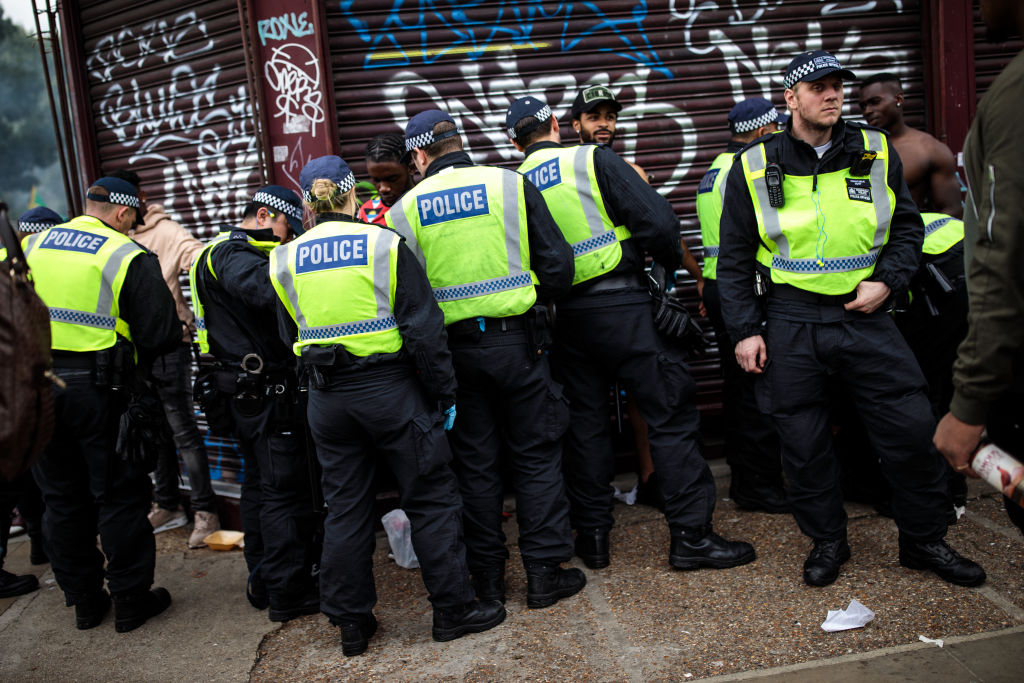Today in Britain, some of our poorest communities are under siege from gangs and violent crime – and it can be stopped. It is near impossible for people to realise their potential when they do not even feel safe in their communities and so it is a social justice issue that the Home Secretary is right to weigh in on. Sajid Javid is said to be planning a significant extension of police stop and search. After years of restricting these powers, it’s about time.
Javid is far from alone in believing stop and search is part of the answer to dealing with surging knife crime and serious violence. The Centre for Social Justice’s poll of Londoners in July found 89 per cent think that increasing the chances of being caught is important to tackling the problem. But well-meaning activists and pressure groups have endeavoured to dominate and racialise the narrative around stop and search. Even today, the Labour MP Chuka Umunna said that while stop and search ‘has its place’ it is ‘too often…used in a way which demeans and humiliates young black people in particular’.
This criticism of stop and search has been aided by the label of “institutional racism” that unhelpfully leads the ill-informed to believe that the police are, to a man or woman, racist. It’s a view that is reinforced when an inherently flawed methodology is routinely used to argue that, for example, a black person is 20 times more likely than a white person to be stopped and searched in Dorset. Such a statistic inevitably leads some to believe Dorset must be the most racist force in the country – even as they overlook the reality that it equates to the entire Dorset police force stopping 0.6 “too many” black people per day.
We also know from Home Office research that when adjusting for the available street population in an area (rather than the much less diverse census data), the racial disparity melts away. This flawed critique has been used to drive the huge reductions in stop and search in recent years, featuring in speeches by politicians, training packages for police officers, and workshops aiming to educate young people.
The damage of such mistruths being peddled shouldn’t be underestimated. Young people, as with people of all ages, have little time or tolerance for racists. Programming youngsters to believe that the police are both “institutionally racist” and racist in their use of stop and search then has unsurprisingly done much more to sow the seeds of mistrust and discontent than bring the police and public together.
With stop and search having fallen by about 80 per cent across the country – with some notable and commendable exceptions – it’s understandable that those hit hardest by street crime and thuggery feel the streets have been surrendered. Merseyside’s chief constable, Andy Cooke, has perhaps made the most convincing and eloquent case yet for the vital role of stop and search, and the importance of reclaiming the power from the grasp of activists and pressure groups: “it’s about criminality, not race,” he said.
The next step is to accept the vital role it played in reducing serious gang and knife violence in Glasgow: the much-heralded, but often misunderstood, “public health approach”. The same groups that oppose stop and search are now seeking to deny the vital role of policing and law enforcement in Glasgow’s miraculous turnaround. By Glasgow’s own admission, one of their first steps was to “send stop and search through the roof”.
We also know from the Home Office’s own assessment of Boston’s Group Violence Intervention that when that city sought to reduce violence, it was only when a model incorporating the credible promise of enforcement was introduced that violence was reduced.
Almost a decade ago, in a report, Dying to Belong, the Centre for Social Justice pointed to Glasgow, Boston and Cincinnati as a model to emulate. Last week, the CSJ offered an updated proposal for a Group Violence Intervention. This is an approach that proves “it can be stopped” and one that has been adopted by dozens of cities. Our politicians and policing leaders must now act to introduce a Group Violence Intervention for London and use the natural opportunity it affords to help bring the police and the communities most affected by crime together.
Rory Geoghegan is a former police officer and the author of the Centre for Social Justice report, It Can Be Stopped





Comments